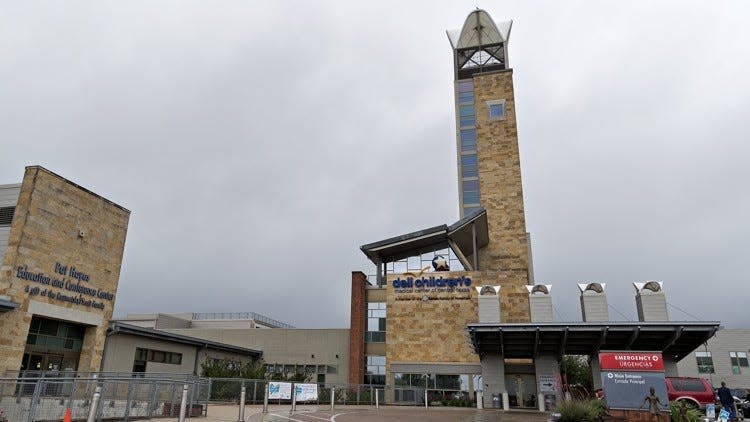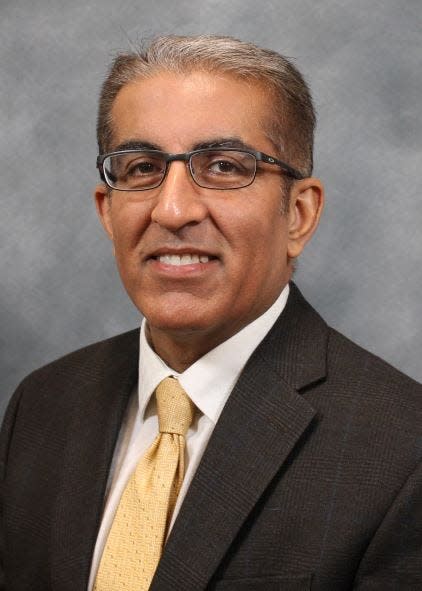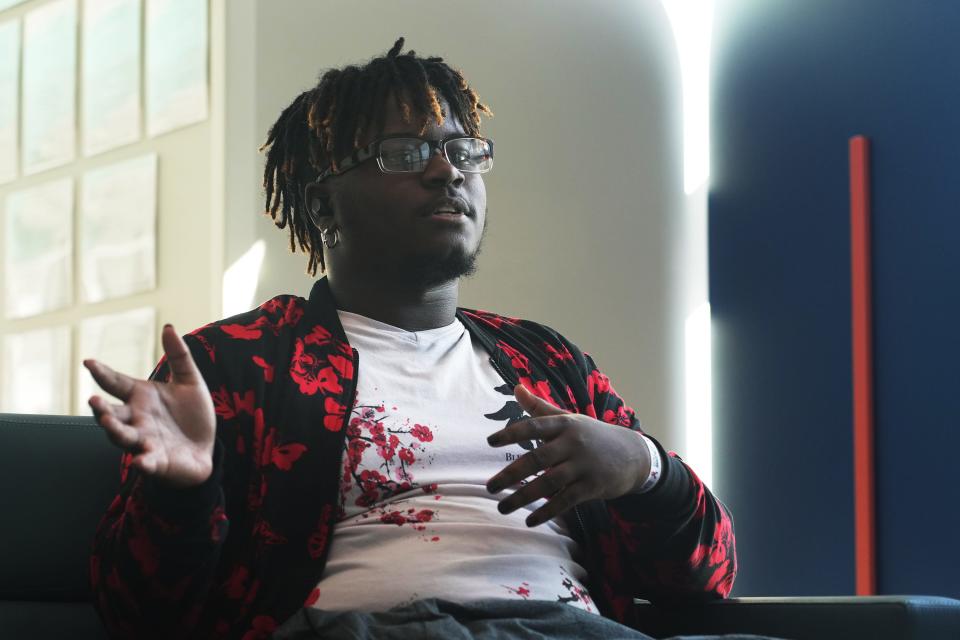Dell Children's takes first step to start stem cell transplant program for children in Austin

After years of promise, the stem cell therapies and transplant program at Dell Children's Medical Center of Central Texas has finally launched by hiring its first medical director — an expert tasked with leading its accreditation effort over the next year to 16 months.
The program, once accredited, will perform clinical trials and provide therapies, the latter often used in treating cancer or sickle cell disease.
"We are here to actually start the program," said Dr. Amir Mian, the division chief of pediatric hematology/oncology at the hospital and at the department of pediatrics at Dell Medical School. Mian arrived in Austin this summer after launching a similar pediatric program at the University of Arkansas and Arkansas Children's Hospital in Little Rock.
"There's going to be a tremendous amount of opportunity," Mian said. Dell Children's will be able to participate in clinical trials it has not previously been able to participate in, he said, which is "a big deal," he said. Children "will get all the treatment for their entire duration at home," he said "They wouldn't have to go anywhere else for a portion of their treatment. It will be right here."
Mian expects to be treating 10 to 12 patients a year once the accreditation process is completed in the next 12 to 16 months, he said. He expects those numbers to grow 8% to 10% a year.
Accreditation is "a long process," Mian said. "You don't want to start a program with half-baked processes. The goal is to make sure the patients get the best outcomes. We will only start when we are ready to deliver the best outcomes.... When we start, our first patient should get care like anywhere else."
This program is 16 years in the making.
When Dell Children's opened in 2007, it had promised to launch the bone marrow transplant program the following year, it did not immediately materialize.
Instead, children who needed stem cell treatments had to travel to Houston, Dallas or San Antonio, where they would stay for weeks or months during the treatment period. Family members moved with them.

Why didn't Dell Children's launch the stem cell transplant program earlier?
Like with many of the programs Dell Children's has launched in the last five years, the stem cell program needed both the funding to hire the specialized staff to run the program and a medical school that would attract the specialists who want to do research as well as teach the next generation of pediatric specialists.
Ascension Texas, the parent company of Dell Children's, invested more than $750 million in the hospital in recent years. That funding enabled the hospital to add a fourth tower last year, build a second hospital in North Austin that opened this year, add more specialized technology as well as expand staffing for these new programs.
That fourth tower was built with four rooms HEPA-filtered, positive -pressure rooms needed for the severely immunocompromised state a person is put into before receiving a stem cell transplant.
Dell Medical School at the University of Texas at Austin opened with its first class in 2016. Many of the specialists, like Mian, who have since come to Dell Children's are actually on the medical school payroll.
The medical school and the funding investment have paid off. In 2020, Dell Children's did its first heart transplant. In 2021, it did its first fetal surgery and its first kidney transplant. It's also expanded treatments in its neurology and cancer centers.
Why will the program take another year to start treatments?
During the next four to six months, Mian will be hiring a team of a dozen people to run the program including in-patient and out-patient nurses, nurse practitioners or physician assistants, quality and compliance coordinators, a social worker, a pharmacist and a nutritionist.
The hospital also is purchasing apheresis machines to harvest the stem cells and utilizing a blood bank in Dallas with the technology to hold the patients' stem cells in liquid nitrogen until the patient is ready for those cells to be reinserted months later.
Mian explains that like most pediatric hospitals, Dell Children's won't have the number of patients needed to make it financially viable to have its own specialist blood bank. He'll use the same bank that he used when he was in Arkansas.
"It's a model that's been used by many, many hospitals and it's worked really well," he said.
The biggest hurdle to launch the program is getting accreditation through the Foundation for the Accreditation of Cellular Therapy. The team will need to establish all the processes and procedures and do training with all levels of the hospital before it can pass accreditation. FACT will look examine what happens when a stem cell patient arrives in the clinic, the emergency room, the intensive care unit, as well as the actual process of retrieving, harvesting and infusing stem cells.
Once launched, the program will go through FACT accreditation every two to three years.

What will the stem cell program allow the hospital to do?
Dell Children's will start with autologous stem cell transplants, where a person's own stem cells are retrieved through their blood then reinserted. This type is used in people with solid tumors.
The patient goes through rounds of chemotherapy before stem cells are harvested, then additional chemotherapy until the body is ready to receive an infusion of their stem cells.
Mian envisions the first patients to be children with neuroblastoma, a brain cancer that has responded very well to stem cell transplants. "It's now the standard of care," he said.
After launching the autologous program, Dell Children's will move onto allogeneic stem cell transplants, which use donor stem cells. Patients who need that kind of transplant are more sick and more high risk, Mian said.
Gene therapy and clinical trials will follow. "Then the sky's the limit," Mian said.
Advancing care: 'Why we came here': Austin's Dell Children's developing center to treat sickle cell disease
This article originally appeared on Austin American-Statesman: Dell Children's takes first step to start stem cell program in Austin

